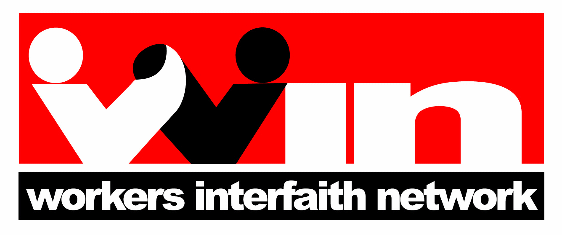Your participation in WIN's press conference and your calls to Congressman Cohen on the National Day of Action Against Wage Theft made a difference! Rep. Cohen has now co-sponsored three bills that could make a big difference in the fight against wage theft.
Please take a moment to thank Congressman Cohen for standing up for fair pay. You can send him an email or make a thank you call to David Greengrass, Rep. Cohen's senior legislative assistant at 202-225-3265.
So, what are the bills that Congressman Cohen co-sponsored, and what difference will they make to workers if passed?
1) The Wage Theft and Community Partnerships Act (HR 6268)
What would it do?
HR 6268 would allow the Department of Labor's Wage and Hour Division to establish a community grants program. These grants would be given to knowledgeable, experienced community and labor groups who have dealt with wage theft. These groups would partner with the Department of Labor to prevent wage theft by educating workers about their wage rights and what to do if their wages are stolen, and to educate employers about their responsibilities to follow wage laws.
Why does it matter to workers?
As I posted a couple of months ago, this bill represents the kind of "community policing" approach that's needed if the Department of Labor is going to reach workers who are most vulnerable to wage theft. Workers' Centers, labor unions, and legal clinics that have experience with wage theft often know best which industries or employers in their community commit the most wage theft. They also have built relationships of trust with low-wage workers. As New York state's Wage Watch program is showing, these types of partnerships are powerful.
2) The Wage Theft Prevention Act (HR 3303/S 3877)
What would it do?
HR 3303 makes sure that workers don't miss out on the chance to get back their stolen wages just because their employers manage to drag out investigations by the Department of Labor. This legislation would freeze the statute of limitations for recovering wages from the date that the Department of Labor informs an employer that he or she is being investigated for wage theft. The legislation would also allow workers to file private lawsuits to try to recover their wages while the Department of Labor investigation is going on.
Why does it matter to workers?
An investigation of the Department of Labor by the Government Accountability Office in 2009 found that often the DOL took so long to complete wage investigations that the statute of limitations ran out and workers lost their opportunity to get their back pay. Some employers are aware of this and are uncooperative during investigations so that they take longer. Having the right to file a private lawsuit would mean that workers have other options if the Department of Labor is taking a long time to investigate their case.
3) The Fair Playing Field Act of 2010 (HR 6128/S 3786)
What would it do?
This bill closes a tax loophole that allows businesses to misclassify employees as independent contractors. It would allow the International Revenue Service to issue guidance to employers about who can be considered an independent contractor versus who must be considered an employee. It would also amend the tax code, to end reduced penalties that currently exist when employers faile to withhold income taxes and pay FICA taxes.
Why does it matter to workers?
Misclassification can occur in any industry, but the problem is rampant in construction. Employees are guaranteed minimum wage, overtime pay, workers compensation coverage, unemployment insurance coverage, and their employer pays half of their Social Security and Medicare taxes. Independent contractors, on the other hand, do not have any of these gurantees and they must pay the entire portion of the Social Security and Medicare taxes. By misclassifying workers, unethical business avoid normal payroll procedures and paying taxes and benefits required by law.
As you can see, all three of these bills are needed to prevent and punish wage theft, and Congressman Cohen deserves to be thanked for his support.
Hello world!
2 months ago





No comments:
Post a Comment